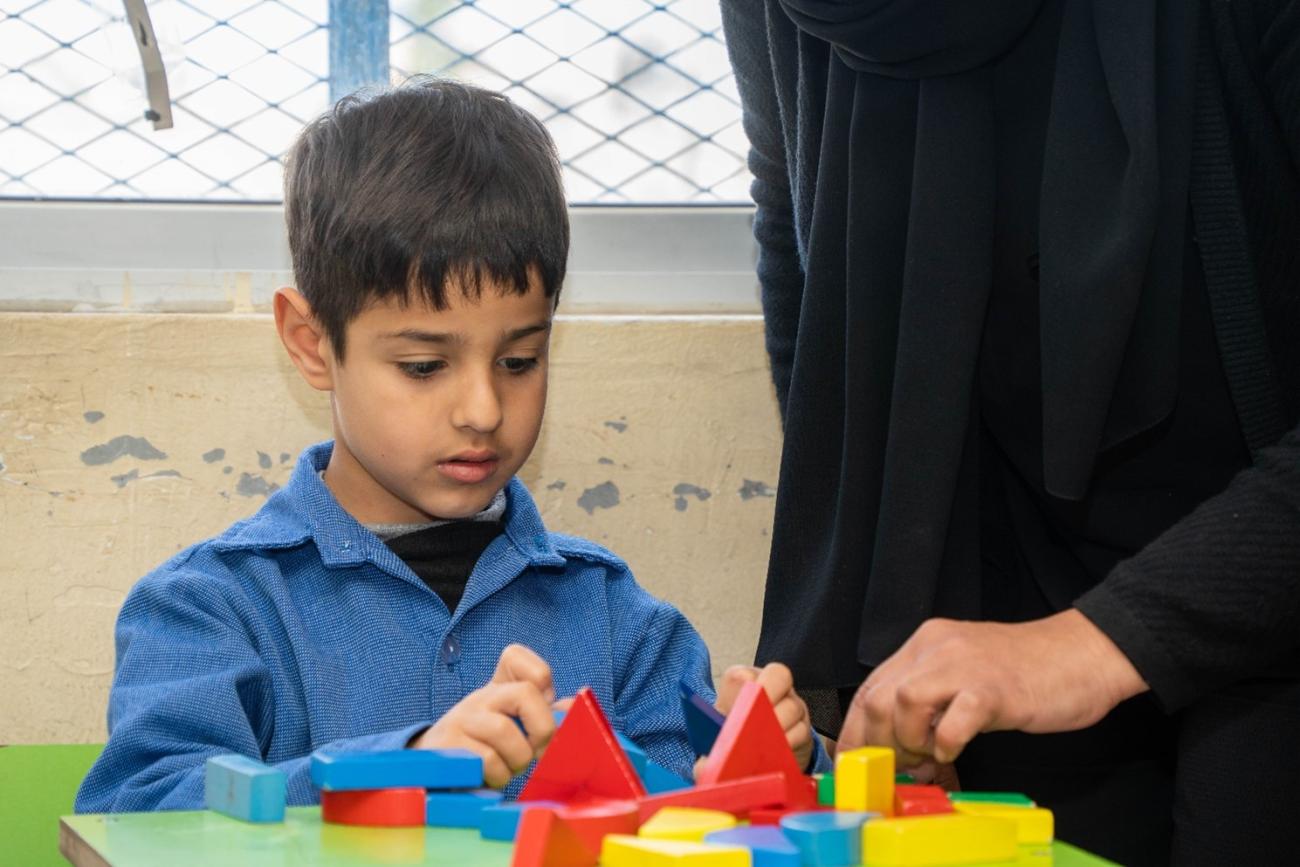Transforming the education system in Jordan towards greater inclusion and diversity in education

UNESCO is partnering with the MoE to ensure that all children and youth in Jordan have access to quality education, regardless of their background.
The Ministry of Education (MoE) in Jordan has embarked on an ambitious initiative to reform its education system in accordance with its Education Strategic Plan 2018-2025 and SDG4. UNESCO is partnering with the MoE to ensure that all children and youth in Jordan have access to quality education, regardless of their background. Inclusion and diversity in education is a key priority and significant efforts have been made towards achieving it in Jordan. In partnership with GIZ, UNESCO is providing technical assistance to MoE and the Higher Council for the Rights of Persons with Disabilities to mainstream inclusion in Jordanian schools, with a particular focus on children vulnerable to exclusion from and within education, including children with disabilities and learning difficulties and refugees.
Thirty MoE pilot schools in Ajloun, Marka, and Karak were involved with 203 teachers, principals, counsellors, resource room teachers, officials, and planners benefitting from awareness and training sessions on mainstreaming inclusive practices and approaches in the schools and classrooms. The schools then conducted cascade sessions within their communities, reaching over 4,800 teachers, school staff, parents, and students. Over 1,100 refugee students and 700 students with disabilities and learning difficulties enrolled in these 30 schools are positively impacted by these efforts.
Nisreen, a teacher at Dahiet Prince Hassan School, was part of the school team that participated in the pilot programme. The school enrolls around 80 students with disabilities and over 640 Syrian refugees. Awareness sessions were held with teachers, students, and parents to improve their capacities to deal with students with diverse needs and ensure a healthy and welcoming school environment. Nisreen witnessed a remarkable change inside the school, including in her students’ behavior with their peers with disabilities.
The work has led to higher enrolment of students with disabilities in the schools. A mother of an eight-year-old Syrian refugee student, Muhannad, shared her story “I had a lot of difficulties with Muhannad, especially when he was diagnosed with autism. He didn't like going to school. The fact that teachers weren’t trained to deal with his case made it more difficult. But since I enrolled him in this inclusive public school in Karak, his behavior has completely changed at home, and more importantly, he now loves going to school to learn and see his friends”.
Jordan's commitment to inclusive and quality education for all is highlighted by the government's recent endorsement of the 'Jordan Declaration on Inclusion and Diversity in Education' in June 2022. The Declaration stresses Jordan’s commitment towards mainstreaming inclusion in schools and includes a list of children vulnerable to exclusion from and within education and a common definition of inclusion and diversity in education for Jordan. The Jordan Declaration was also featured in the National Statement of Commitment made by Jordan at the UN Transforming Education Summit conveyed by the UN Secretary General in September 2022.
Overall, UNESCO's work in Jordan supports national institutions and stakeholders to transform and strengthen their education systems, providing knowledge, training, and skills enabling all learners to reach their full potential and contribute to the economic development and growth of Jordan. Part of this work also focuses on improving the Education Management Information System to yield better and more disaggregated data on disabilities and on refugees, which is being done in partnership with UNHCR and UNRWA.
Despite these significant efforts, many systematic and structural challenges remain, as well as gaps in funding, capacity development needs at all levels to improve delivery of inclusive education, and the need for continuous awareness raising to impact attitudes. Partnership and collective efforts are critical to continue putting learners’ inclusion and diversity at the heart of education post Covid-19 and in meeting Jordan’s commitments to ‘transforming education’.

